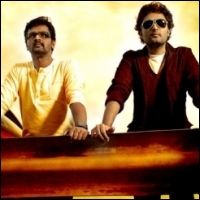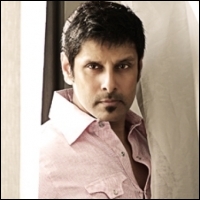
After the Fukushima nuclear disaster, it's time for a moratorium on all unsafe nuclear complexes in India
Sadiq Naqvi Delhi With the world still staring at a nuclear catastrophe, the dense white apocalyptic plume billowing from the crippled reactors at the Fukushima Daiichi nuclear complex in Japan has shown that even a super-advanced country in terms of excellence and achievement can face a catastrophic accident that can endanger human lives and ecology on a mass scale. After all, this is happening in a First World economy, a
country which boasts of its superior cutting-edge research and technological prowess.
What exactly happened in Fukushima after the massive earthquake and subsequent tsunami waves is still not clearly known. What is clear, however, is that all the safety features installed at the plant gave in one after another. "The tsunami and the earthquake were just the triggers. The fact of the matter is that the reactors are not designed to cope with serious accidents and natural calamities," says journalist Praful Bidwai, activist with Coalition for Nuclear Disarmament and Peace (CNDP).
CNDP's assessment holds ground if one looks at the way the acclaimed safety apparatus at Fukushima crumbled soon after giant waves smashed through its formidable infrastructure. The nuclear plant had a three-tier safety system to cope with any eventuality. The first system started working as soon as the earthquake struck and the fuel rods undergoing fission at 270 degree celsius were shielded by control rods,
putting a stop to the process.
The fuel rods continued to generate heat even after the fission stopped. In this case, there is the provision of a cooling system, but it crumbled with the massive earthquake. Diesel generators take over in case of a power outage like what happened in Fukushima, but those were rendered useless by the subsequent tsunami waves. These 'gensets' were kept in the basement and were ravaged by the marauding waves.
The US Nuclear Regulatory Commission, in a report published in 1990, had forewarned that power outage due to an earthquake-induced failure in the diesel generators and subsequent failure of the cooling system is the most likely cause of a nuclear accident. The Japanese, ironically, cited the report, but never took any corrective measures.
The last resort, a system which converts steam back into water to cool the fuel rods, failed as the water level dropped substantially because the fuel rods were still generating heat. "This is not possible without a crack in the reactor vessel. It must have broken after the earthquake," says Bidwai. The steam generated by the intense heat released hydrogen, which is highly inflammable. Efforts to vent out hydrogen from the building resulted in an explosion which blew the roof off. Worryingly, the hydrogen being vented out was actually tritium water vapours, which can be easily absorbed by the human body and have a radioactive 'half-life' of 12.5 years.
The reactors at the Fukushima nuclear facility are of boiling water type design. General Electric, the designer and manufacturer, had reportedly persuaded the regulators that after taking into account the efficiency of the 'Torus' (a doughnut-shaped metal tank half-filled with water to manage excess steam in reactors) and the amount of heat that needs to be managed, even a weak and modest outer containment wall would suffice.
This did not happen in Fukushima and the containment exploded. On the contrary, experts argue, the pressurised water design reactor with super-strong containment at the Three Mile Island facility survived a hydrogen explosion and it is reported that only a thump was heard. Albeit,
even at Three Mile Island, which is said to be the worst nuclear accident in the history of the US, half of the core in one of the units had melted due to loss of coolant. Moreover, startling revelations have come up regarding the design of one of the reactors. Mitsuhiko Tanaka, an engineer who supervised the $250 million pressure vessel in 1975, which now houses the fuel rods in Reactor Number 4 and is in tatters after the explosion, has reportedly
claimed there were faults in the design of the vessel and that he had orchestrated a cover-up with the help of Hitachi, the company entrusted with the work. Post Chernobyl, due to a change of heart, he reported the cover-up to the government, but his pleas fell on deaf ears and the problem was not investigated. Indeed, typically, nuclear establishments in all countries are secretive, dogmatic and shadowy, unable to accept any critical and rational dissent or revelation.
Also, the spent fuel rods stored in water pools in the Fukushima complex too are risky, because, exposed, they emit deadly radiation. At the time of writing, one of the pools was already on fire due to a hydrogen explosion. "This spent fuel has even more muck than the fuel in use," says Bidwai. Interestingly, the National Academy of Sciences, USA, commenting on a request by the Congress in 2004, had reportedly noted:
"...partially or completely drained pool could lead to a propagating zirconium cladding fire and release large quantities of radioactive materials to the environment." At the time of the quake, the Fukushima facility was stacked high with more uranium than it was originally designed to hold and had repeatedly missed mandatory safety checks.
The Fukushima facility is operated by Tokyo Electric Power Company (TEPCO). In an industry where secrecy and non-transparency are the mantras of success, TEPCO too has a dubious record. The company apparently has a history of fudging data. "There have been more than 200
instances of TEPCO reporting false data," says Bidwai. In 2007, the CEO of the company had to resign after the allegations were proven. "JAPAN HAS CHANGED the paradigm of debate vis-à-vis the proposed Jaitapur nuclear park," says Vivek Montero of the Konkan Bachao Samiti. He says that the Fukushima disaster has shown that radioactivity affects everything, all life, agriculture, plantations, animals, human lives. "People have categorically stated their position. The question is not of compensation. We don't want the project, that's all," he adds.
People in the Jaitapur area received land acquisition orders in 2007. By January 2010, the government of Maharashtra had completed the acquisition of 938.026 hectares. Despite forcible acquisition of land, only 114 out of the 2,375 affected families have claimed compensation. "Most of the people who have accepted the compensation are absentee landlords," says Bidwai, who visited Jaitapur recently.
At a recent public meeting with Maharashtra Chief Minister Prithviraj Chavan (a hardliner for nuclear energy) and Congress heavyweight Narayan Rane at Jaitapur, the project was unanimously opposed by the villagers. This was expressed politely in front of the chief minister. However, soon after the meeting, repression followed, despite the popular protests having been peaceful all through.
"The chief minister had called us on February 26. The interaction was attended by many locals and most of them told him in plain words that the project won't be allowed," says Montero. Since then, the police have been picking up locals and activists on fabricated and old cases. Montero says that 24 people have been taken into police custody; some of them were detained for long periods without being produced in court. "The government is forcibly pushing the enhanced compensation package down our throats," says a local.
The entire area is under siege. Even parliamentarians and judges have been barred from entering the area. In December, former Bombay High Court judge BG Kolse Patil was detained for five days and not even produced before a magistrate within the stipulated period of 24 hours. Other who have not been allowed include CPI General Secretary AB Bardhan, former Chief of Naval Staff Admiral L Ramdas, former Supreme Court judge and Press Council of India chairman PB Sawant, well-known Pune-based social scientist Sulabha Brahme, and ecologist Madhav Gadgil.
Post the unfolding disaster in Fukushima, the local community is wary. "The area is prone to earthquakes and falls in Seismic Zone IV, a high damage risk zone," says Montero. "Over the past 20 years alone, there have been three earthquakes in Jaitapur exceeding 5 points on the richter scale. In 1993, the region experienced one quake reaching 6.3 leaving 9,000 people dead. In 2009, due to an earthquake, the bridge to Jaitapur collapsed. None of this was taken into account when the site was chosen," says a report by Greenpeace.
Home to the succulent Alphonso mangoes, Jaitapur is one of the 10 hottest bio-diversity hotspots in the world. Cradled in the scenic Konkan region, it called the Kashmir of Maharashtra. "There is not one inch of land which is devoid of lush green vegetation. They are virgin rainforests," says Bidwai. The Sahyadri mountain range is home to over 5,000 species of flowering plants, 139 mammal species, 508 bird and 179 amphibian species, including 325 globally threatened ones. "People know that the project will destroy their land and livelihood," says a local. There are fears that the project will seriously hamper the fishing economy of the area. In Jaitapur and Madhban, a sizeable population is engaged in fishing.
Plans are afoot for mega nuclear parks to take the power generation through atomic energy to an astronomical 63,000 MW from the current 4,780 MW. The government has planned a nuclear park at Jaitapur, which will have six reactors producing 1,650 MW each. It is slated to be the world's biggest nuclear plant. A French firm, Areva, has been given the contract of six European Pressure Reactors (EPR) at a whopping cost of Rs 42,000 crore. There are nagging worries over the design, functionality and efficiency of these reactors.
"Areva's 1,650 MW EPRs are based on the French N4 and German Konvoi-type reactors. Nowhere in the world has an EPR been fully built or commissioned so far. There are four EPRs in different stages of construction in the world. Two of them are already beset by serious safety and financial problems and delays," says Bidwai. Areva itself has been going through a devastating financial crisis. In 2009, it sought $4 billion in a short-term bailout from French taxpayers, and its shares plunged by over 60 per cent. Post Fukushima, Areva's shares took a further 10 per cent beating. "The Jaitapur case shows that the private nuclear companies are more powerful than the government itself," says Gopal Krishna, an activist with Toxics Watch.
"The government attaches the highest importance to nuclear safety. The Department of Atomic Energy (DAE) and its agencies, including the Nuclear Power Corporation of India, have been instructed to undertake an immediate technical review of all safety systems of our nuclear power plants, particularly with a view to ensuring that they would be able to withstand the impact of large natural disasters such as tsunamis and earthquakes," assured Prime Minister Manmohan Singh in Parliament.Days later, the country's Atomic Energy Commission Chief Srikumar Banerjee said in an interview, "You should worry less about nuclear energy than about walking or driving on the streets of Delhi."
However, the ministry of health and family welfare had stated to a parliamentary committee in 2010: "...ministry is nowhere to meet an eventuality that may arise out of nuclear and radiological emergencies...while drafting the bill the department of atomic energy did not consult them. Since the response system to deal with any kind of emergency of such type, the hospitals, are not well-equipped, it is natural that mortality and morbidity due to multiple burn, blasts, radiation injuries and psycho-social impact could be on very high scale and medical tackling of such a large emergency could have enough repercussions in the nearby areas of radioactive fallout."
Despite assurances by the government, experts feel an honest assessment of hazards is impossible. "Like the International Atomic Energy Authority, the Indian DAE too is trapped in conflict of interest. They are both the promoters and regulators of atomic energy. How can one expect an honest assessment from them?" asks Krishna. "Safety audit should be independent," says Bidwai. Even Environment Minister Jairam Ramesh has called for an independent regulatory body for nuclear energy. "Fukushima has changed everything," says Krishna.
 Incident 2day
Incident 2day


















